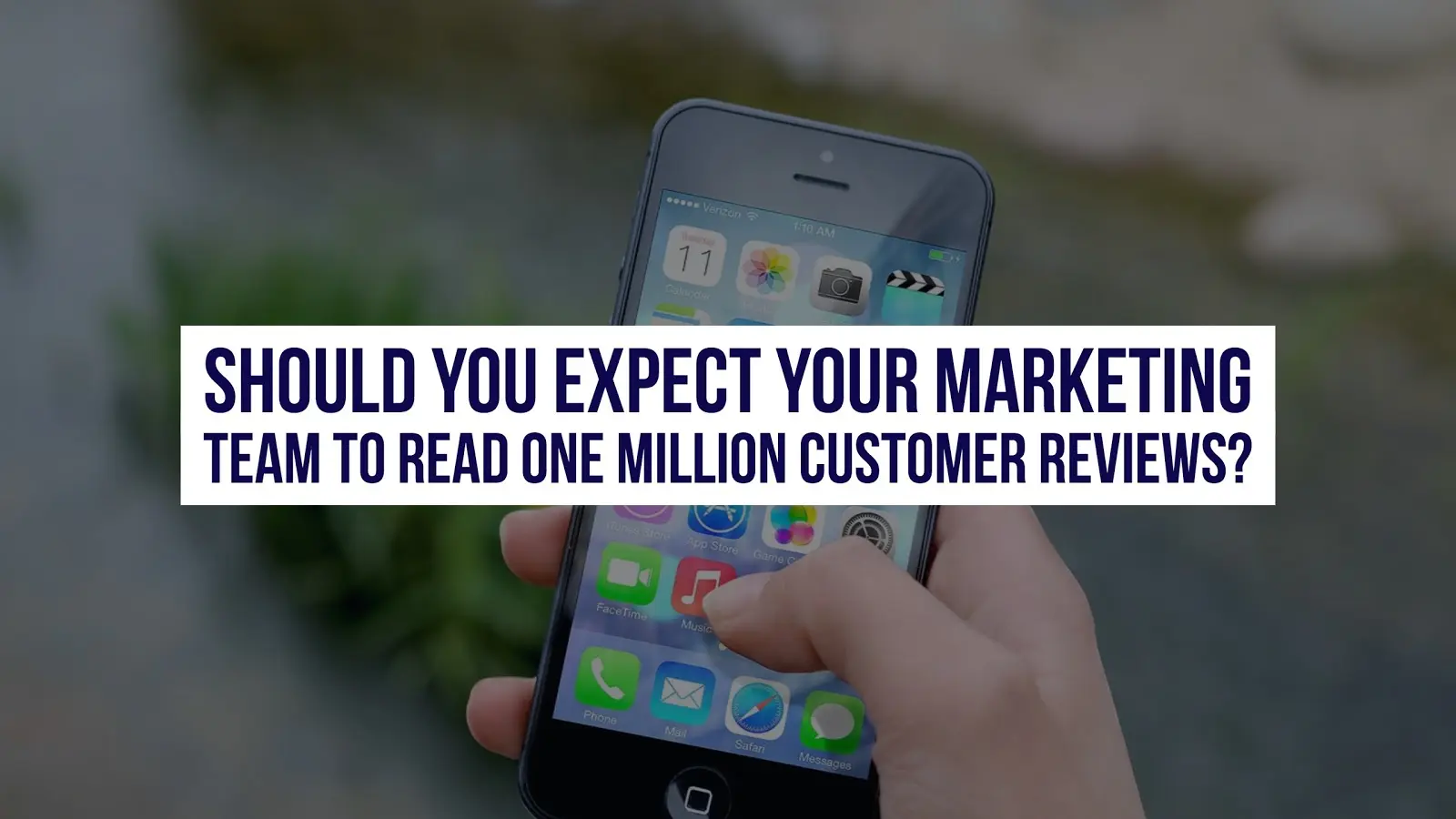To be a great marketer, you need to get inside your target audience’s brains. You’ve got to understand what makes them tick, then create value based on those wants and needs.
There’s no better way to understand your audience than by analyzing their own words in customer reviews.
So you take to the comments section and start reading what they’re saying. You might get 20, 50, or 100 reviews in when you realize that your method isn’t super effective. You’re biased. Naturally, certain parts of the reviews form strong opinions, while you seem to forget about other parts. After reading for hours, you’ll have a slightly more educated guess on what your audience is really thinking about.
Artificial intelligence can do a much better job.
Using Natural Language Processing for Customer Review Analysis (with MonkeyLearn)
We came across this page a while ago and had to share it. AI-powered company MonkeyLearn built a scraper to go out and collect data on one million customer reviews for hotels. It wasn’t about understanding the customers of one hotel chain—it was about customer review analysis for the entire hotel industry around the globe. With AI, they created hard data to answer questions hotel chains have been guessing at for years.
How did they do it?
Well, to keep it pretty simple, they used natural language processing (NLP), an AI-powered technology. A person might be able to understand one review better than AI, but AI understands the aggregate of thousands of reviews better than a person. It’s like humans look through a magnifying glass, while machines don’t. When we look at things up close, they make sense. But from a distance, it’s blurry. AI is the opposite. It’s efficient and reliable when it’s analyzing the big picture.
MonkeyLearn’s scraper went out to TripAdvisor and analyzed around one million customer reviews. It took in data such as the hotel name, number of stars, the customer rating on a 1-5 scale, and sentiment from their review. Sentiment means that it identified keywords—such as location—and whether the reviewer was talking about them in a positive or negative light.
Yeah, AI can do that.
MonkeyLearn started their experiment with a few questions, such as:
- “Do people who stay in hotels in Bangkok complain more about cleanliness than those that stay in, say, hotels in Paris?”
- “What is the city with the worst facilities?”
- “Does the number of stars of a hotel impact its reviews?”
- “Do people have different standards when it comes to hotels of different classes?”
They found insights that marketers of 10 years ago could only dream about.
For example, did you know that customers of London hotels constantly complain about cleanliness and customer service more than any other similar sized city? This indicates that hotels there have lower standards.
Across 1-5 star hotels, internet seems to always be a problem. Interesting, considering that today’s business class consistently work out of hotels. Is there an opportunity there for hotels to rise above the competition?
Three (and even two) star hotels seem to have the highest customer satisfaction when asked about value for the price they paid.
Intrigued? Another tool to investigate in this space is Yext. The company’s review product has direct integrations with over 30 of the top reviews sites to help brands monitor, analyze and manage reviews online.
Their sentiment analysis component directly pulls in customer feedback from these reviews sites and uses natural language processing to analyze customer feedback at scale to understand how your ratings and reviews are being impacted. You’ll also be able to see how your locations stack up against the competition and see how company locations in different areas perform.
What insights could you gain from customer review analysis in your industry?
The right AI can provide the answers.
Mike Kaput
As Chief Content Officer, Mike Kaput uses content marketing, marketing strategy, and marketing technology to grow and scale traffic, leads, and revenue for Marketing AI Institute. Mike is the co-author of Marketing Artificial Intelligence: AI, Marketing and the Future of Business (Matt Holt Books, 2022). See Mike's full bio.



